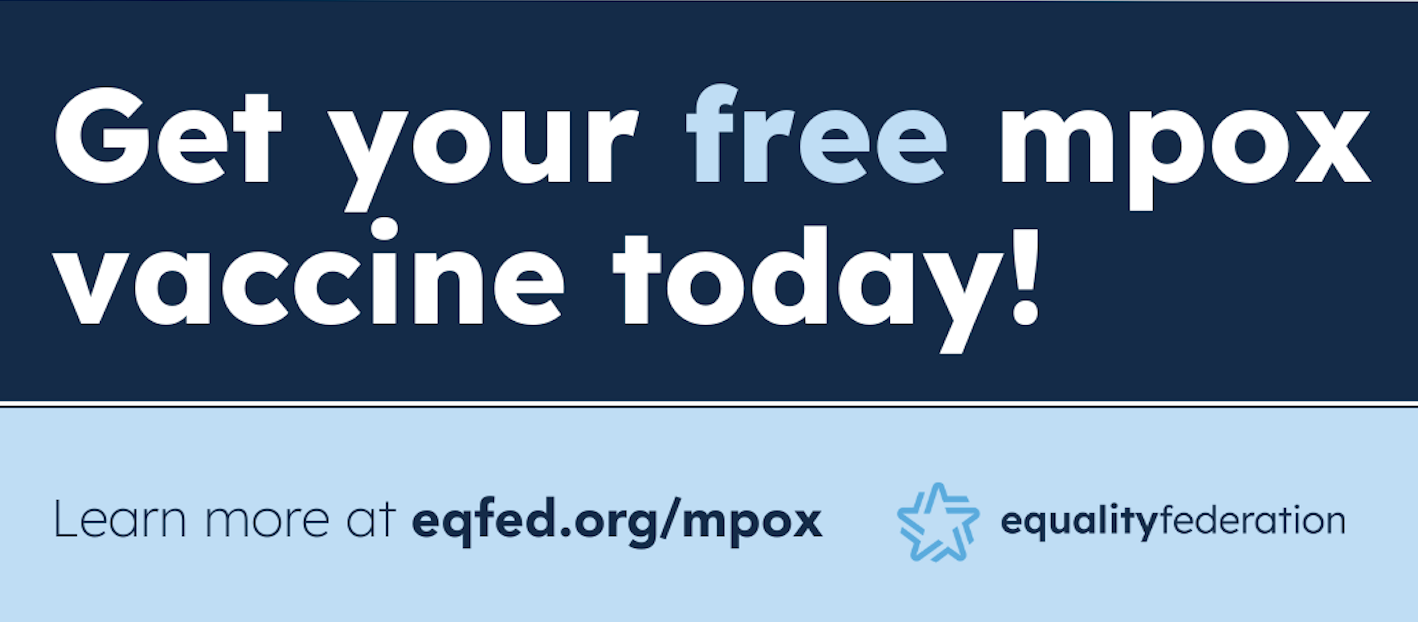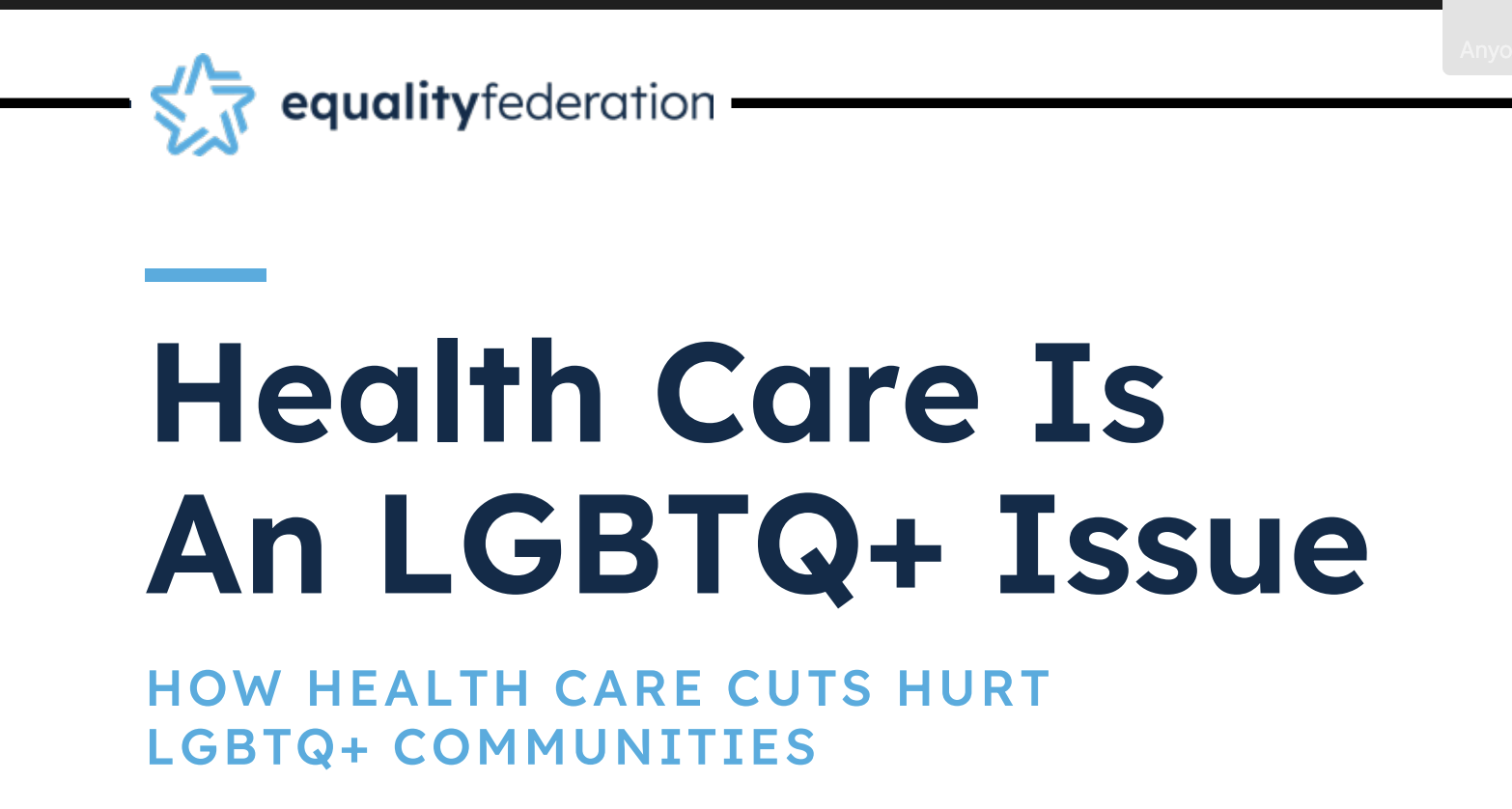How 17 Anti-LGBT Bills Died in Oklahoma


While anti-LGBT legislation makes its way through legislatures across the country, one state stands out as a beacon of hope. Already in 2015, the incredible team at Freedom Oklahoma fended off a whopping 17 discriminatory bills. We caught up with Executive Director Troy Stevenson to get an inside look at how they won.
Equality Federation: Twenty bills were introduced by legislators that were viewed by many to be anti-LGBT. Freedom Oklahoma endorsed two of those bills, why?
Troy Stevenson of Freedom Oklahoma: We endorsed two of the bills because, although they were developed in the spirit of agitating the LGBT community, they really only reaffirmed the first amendment. We believe in the first amendment.
EF: So you were left with 18 discriminatory, anti-LGBT bills...
TS: Yes, 18 anti-lgbt bills! A lot of it was matching legislation in the House and Senate. We had six “religious freedom” bills, and all six were LGBT specific. I don’t think that happened anywhere else in the country. They weren’t generic “you can discriminate against anyone,” they were specifically giving people permission to discriminate against LGBT folks and no one else.
We also had a pro conversion therapy bill. They took the language we used in New Jersey and California to ban conversion therapy and twisted it saying the state was prohibited in intervening in cases of child abuse if it was under the auspices of conversion therapy. It was the very same inclusive language we used in CA and NJ - the way they talked about gender identity and expression sounded progressive - but they were attacking our community with it.
One bill in particular, a “religious freedom” bill, introduced by Sally Kern, was so horrific, that the Governor actually came out against it. It was a true segregation bill saying that in every aspect of life LGBT people could be excluded. If it had passed people would start saying “Oklahoma style” legislation instead of Arizona style. Even the Attorney General said, “You cannot proceed with this legislation!”
We had a bill saying that the state would not be allowed to pay anyone who spoke in support of same-sex marriage or issued a marriage license. Professors were calling legislators because they were concerned that teaching LGBT history or running gay straight alliances could prevent them from being paid. We referred to that bill as “do your job lose your job.”
Another bill, which changes the way the state handles marriage license, is still technically alive in a Rules Committee and we expect it to die soon. The bill is so confusing that a broad coalition of County Clerks, Clergy, and LGBT rights advocates have come out against it.
EF: Wow. Did all of this happen at once? What was the timing of this like?
TS: In OK, all the bills have to be presented before the session begins. We found out about all the bills on the same day because the authors waited until the last minute to introduce. Then there are procedural deadlines, and a lot of the bills were so bad that the legislators didn’t want them to get committee hearings. We thought at least 5 bills could advance. We had a lot of meetings with Republican legislators, and we explained what the bills meant, the cost of litigating them, and explained that National Center for Lesbian Rights was ready to litigate immediately if they became law.
We really pushed hard on the “religious freedom” and conversion therapy bills in terms of public education. We used the media as an ally because once they understood the ramifications of the bills, we had many validators come out and get in front of cameras. We also used procedural devices to make sure these bills were coming up to deadline days. We used procedural dates to stall the bills that seemed like they had legs.
Rep. Virgin introduced a clever amendment to one of the bills which was the final nail in its coffin. Her amendment would have required any business that planned to discriminate to hang a sign-up letting customers know about it saving LGBT couples and people of color the potential embarrassment of experiencing discrimination in front of other customers.
EF: What advice do you have for other advocates across the country working to defend freedom and equality?
TS: Know what could be coming and be prepared before the session with all the resources and allies you can get. Know the rules of your legislator and use procedural processes in the most effective way possible. It helps give nervous legislators cover to help them kill their bills through the process. Make sure that you have good relationships with media and that you can get stories posted.
We were always the explainer and then we always had a third party validator in any story we did. Whether it was business owners, couples, court clerks - whoever the legislation affected - we made sure we had a long list of validators for the press. On the conversion therapy bill, we had dozens of therapists and we had a coalition of state and national organizations together. We made sure that it wasn’t just the gay group that was advocating against it, it was a massive amount of opposition to these pieces of legislation. It was a broad base of opposition. Basically as much as I like to see my face on TV, I knew I wasn’t always the best messenger.
EF: Freedom Oklahoma is a member of Equality Federation. Can you talk about why that is important?
TS: It gives us access to a lot of resources and support we wouldn’t otherwise have, not just resources like technology, but also the connections to other organizations, the experience other state leaders have had that we can learn from and utilize in our state. It gives us the avenues to have closer relationships to other national partners and form stronger relationships with them. So, when we have to step into these fights we are working with people we’ve met at the Summer Meeting or folks we’ve worked with on other issues. It makes it more comfortable than working with strangers, and much more effective!
In many ways the Federation is always there to connect us to whatever resources we need. Whether it is to Gill or HRC or Freedom to Marry or NCLR, there is always somebody there that can make that connection. Even more so now that we are doing the regional calls, it keeps us connected and able to share tactics.
Many people do not know that six years ago the Federation saw the need in OK. They were the first fiscal sponsor of Equality Network in 2009 until we got the C3 and C4 status. Because of Equality Federation’s early support, we’ve been able to build organically Freedom Oklahoma out of that process. Without that initial support from the Federation this organization would not exist, and we wouldn’t have been here to fight back this legislation.

%20(2).jpg)



.jpg)
.jpg)
.jpg)
.jpg)
.jpg)
